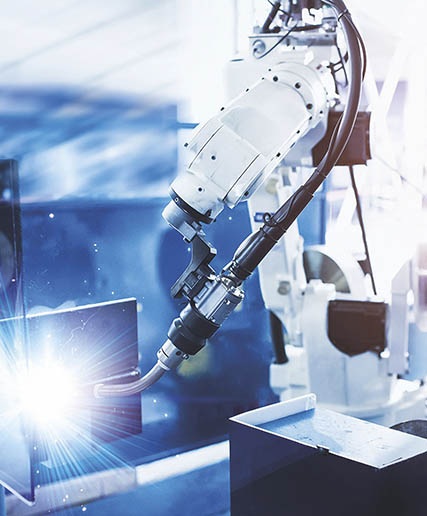Get in touch with us
Open application
- Home
- industry 4.0 and automation
-
How can you make machines smarter in an affordable way?



As a mechanical engineer, you can use the possibilities offered by Industry 4.0 in two ways: by designing and building smart machinery for your customers and through the clever automation of your own processes. How do the investments relate to the revenues?
What will you invest in?
On this page you can read more about what
Industry 4.0 entails, what you can do with machine automation, how you can
start implementing it step-by-step, and what the benefits are. In this article,
we focus on the question: what will you invest in? And of particular importance
if you have just started with Industry 4.0: how do you keep costs manageable?
Everything revolves around data
Smart industrial machines are not only able to carry out production activities but also collect data on the machine’s performance. Data from the various machines, devices, and systems can be connected together via network technology. This data can be recorded in a central location. This makes it possible to analyse the overall picture, provides insight into how the processes can be improved, and offers opportunities to make targeted adjustments to them.
Upgrade versus new
It is clear that smart industrial machines have the right software. In many cases, you can also automate existing machines to a certain extent and add software to them. This means the customer does not have to invest in new machines immediately but can suffice with upgrading their existing machinery.
Modular versus customisation
Upgrading instead of creating and building a new design is one way of keeping costs in check. Another solution is to use standard software modules instead of having fully customised software developed. VIRO has its own library of advanced software modules which make up the Smart Industrial Machinery Toolkit. These modules can be used to expand your machine’s standard Smart Industry operating system with essential extra functions in a cost efficient manner. Examples include logging, use of various communication protocols (such as OPC-UA), user authentication, and remote access.



After the age of steam power and the first machines, the invention...
Industry 4.0 starts with the question: why do customers choose my product...
For small and medium-sized industrial companies, investments in automation may form an...
There are several reasons why you could opt for industrial automation, such...
Mechanical engineers are faced with tough challenges: their customers are looking for...
Curious about what Industry 4.0 can do for your business?